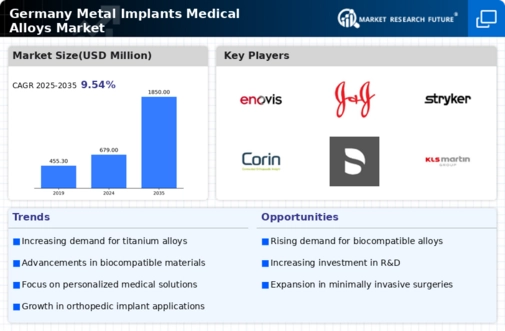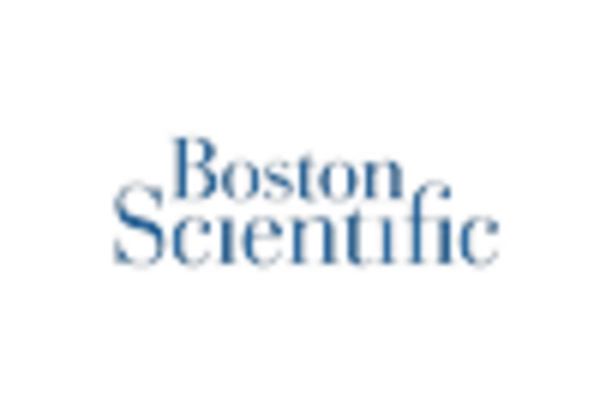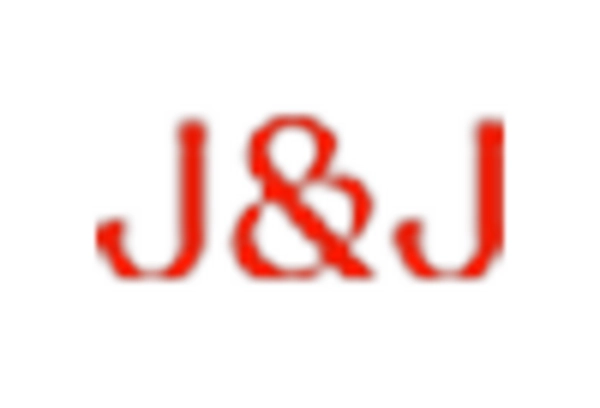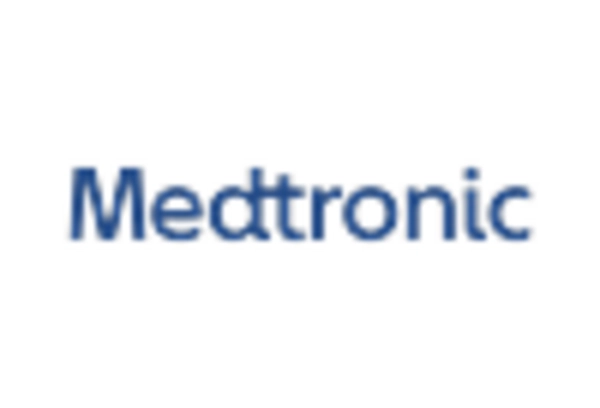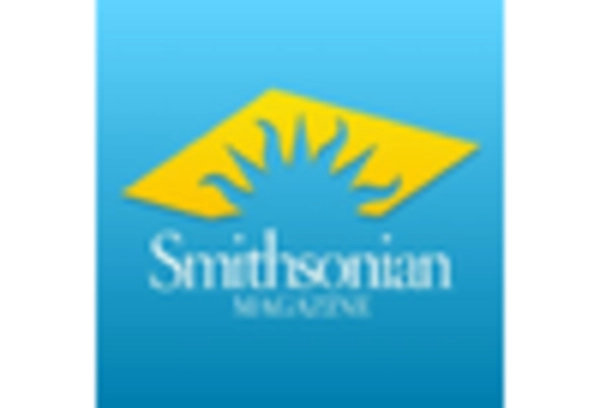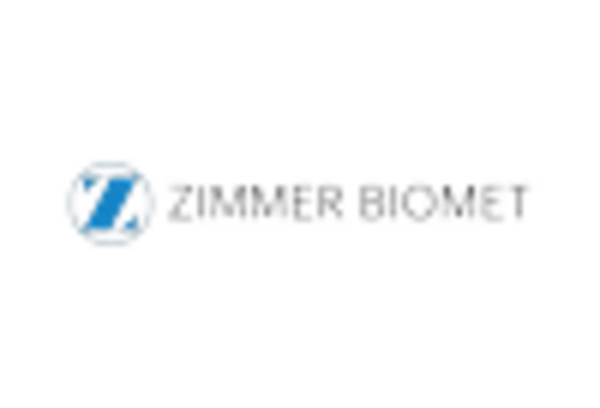Increasing Aging Population
The aging population in Germany is a crucial driver for the metal implants-medical-alloys market. As the demographic shifts towards an older age group, the prevalence of age-related health issues, such as osteoporosis and joint degeneration, rises. This trend necessitates the use of metal implants for orthopedic surgeries and dental applications. According to recent statistics, the population aged 65 and older is projected to reach 23% by 2030, which could lead to a substantial increase in demand for metal implants. The metal implants-medical-alloys market is likely to benefit from this demographic shift, as healthcare providers seek durable and reliable solutions to address the needs of older patients.
Rising Healthcare Expenditure
Germany's increasing healthcare expenditure is a significant driver for the metal implants-medical-alloys market. The country allocates a substantial portion of its GDP to healthcare, with spending projected to reach €500 billion by 2025. This financial commitment facilitates the adoption of advanced medical technologies, including metal implants. As hospitals and clinics invest in state-of-the-art equipment and materials, the demand for high-quality medical alloys is expected to rise. Furthermore, the emphasis on improving patient outcomes and reducing recovery times may lead to a preference for innovative metal implants, thereby bolstering the market.
Regulatory Framework Supporting Innovation
The regulatory framework in Germany plays a pivotal role in fostering innovation within the metal implants-medical-alloys market. The stringent yet supportive regulations ensure that new materials and technologies undergo rigorous testing for safety and efficacy. This environment encourages manufacturers to invest in research and development, leading to the introduction of novel alloys that meet the evolving needs of the healthcare sector. The German Medical Devices Act (MPG) and the European Union Medical Device Regulation (EU MDR) provide a structured pathway for bringing innovative products to market, which may enhance the competitiveness of the metal implants-medical-alloys market.
Technological Innovations in Medical Devices
Technological advancements in medical devices are significantly influencing the metal implants-medical-alloys market. Innovations such as 3D printing and computer-aided design (CAD) are enhancing the customization and precision of metal implants. These technologies allow for the production of complex geometries that can better fit individual patient anatomies, potentially improving surgical outcomes. In Germany, the market for advanced medical devices is expected to grow at a CAGR of approximately 6% over the next five years. This growth is likely to drive the demand for high-performance medical alloys that can withstand the rigors of implantation and provide long-term functionality.
Growing Awareness of Minimally Invasive Procedures
The growing awareness and preference for minimally invasive surgical procedures are driving the metal implants-medical-alloys market. Patients and healthcare providers increasingly favor techniques that reduce recovery time and minimize surgical trauma. Metal implants designed for minimally invasive applications are gaining traction, as they often require smaller incisions and lead to quicker rehabilitation. In Germany, the market for minimally invasive surgeries is anticipated to expand, with a projected growth rate of 5% annually. This trend is likely to increase the demand for specialized medical alloys that can be utilized in these advanced surgical techniques.


